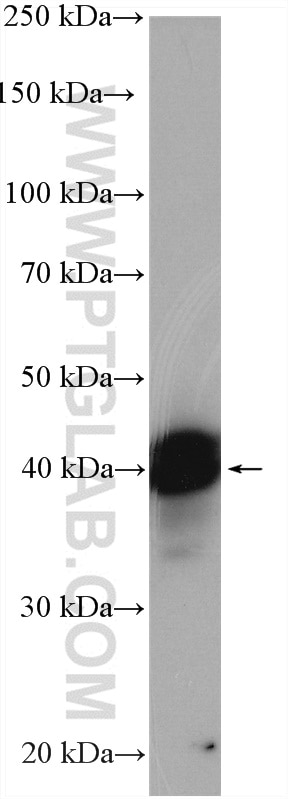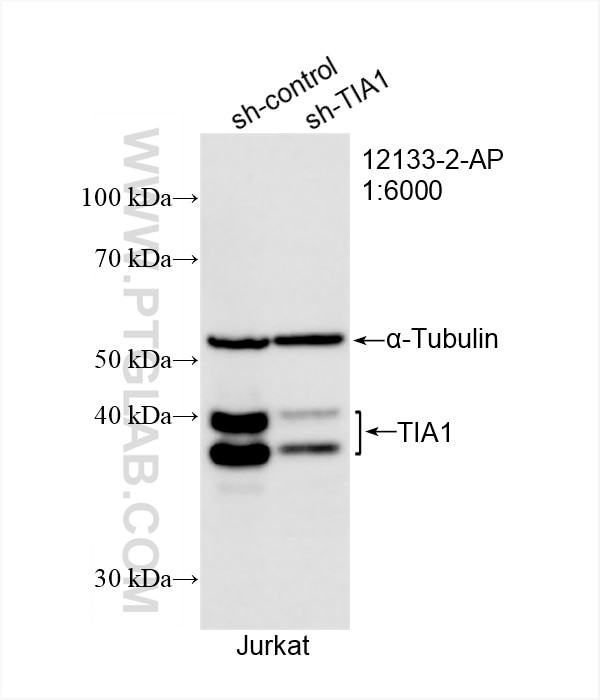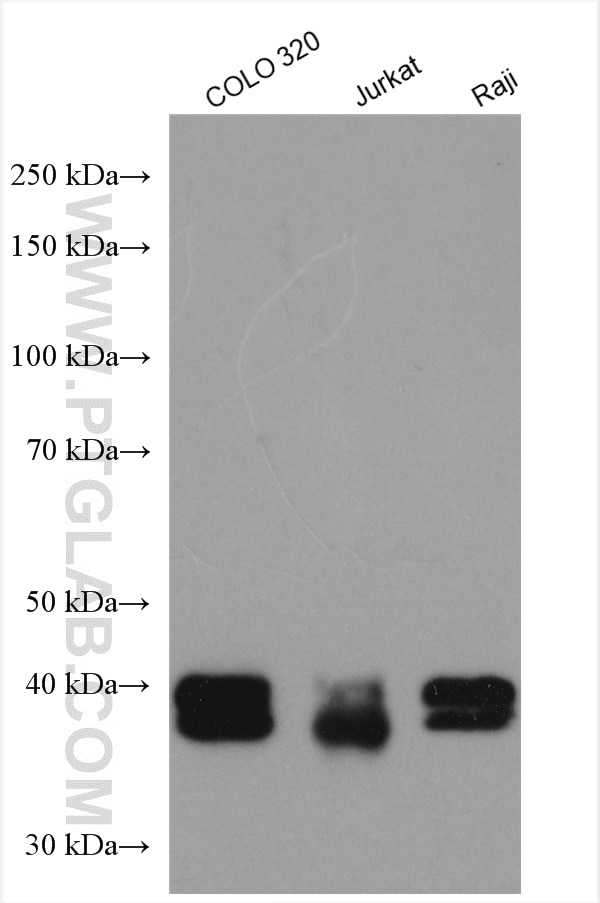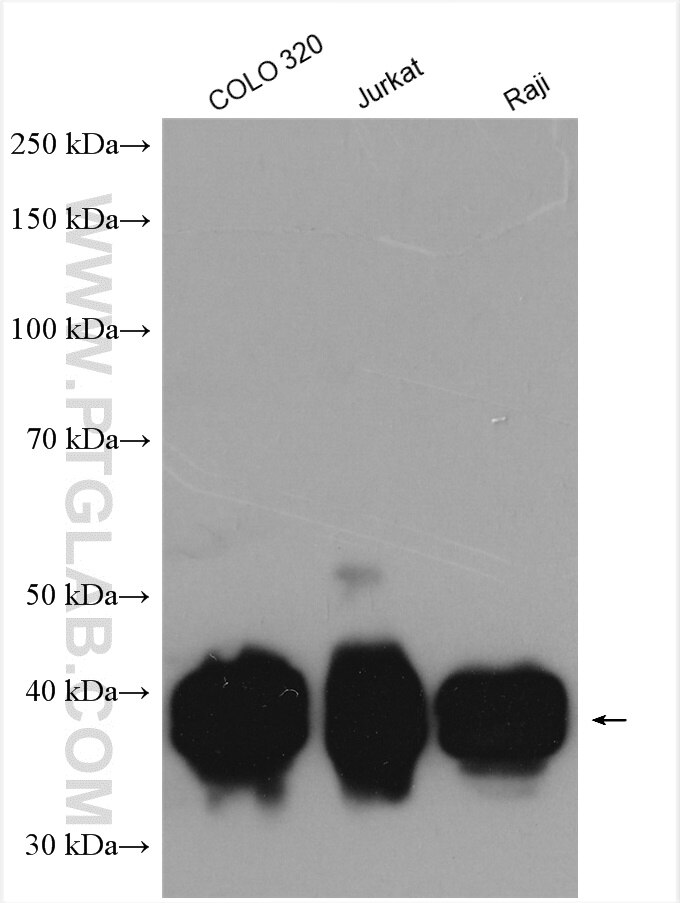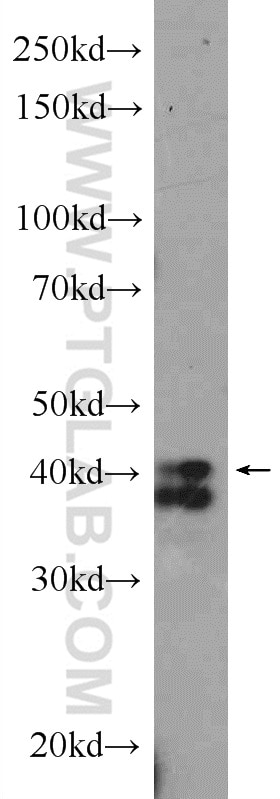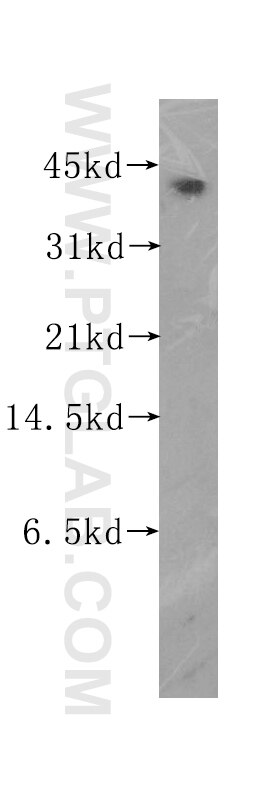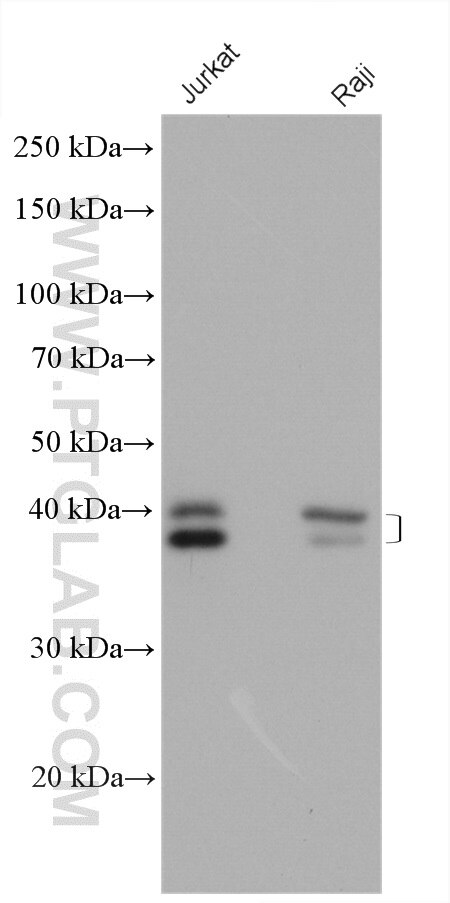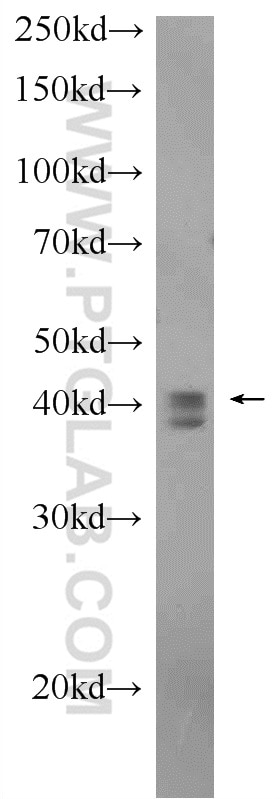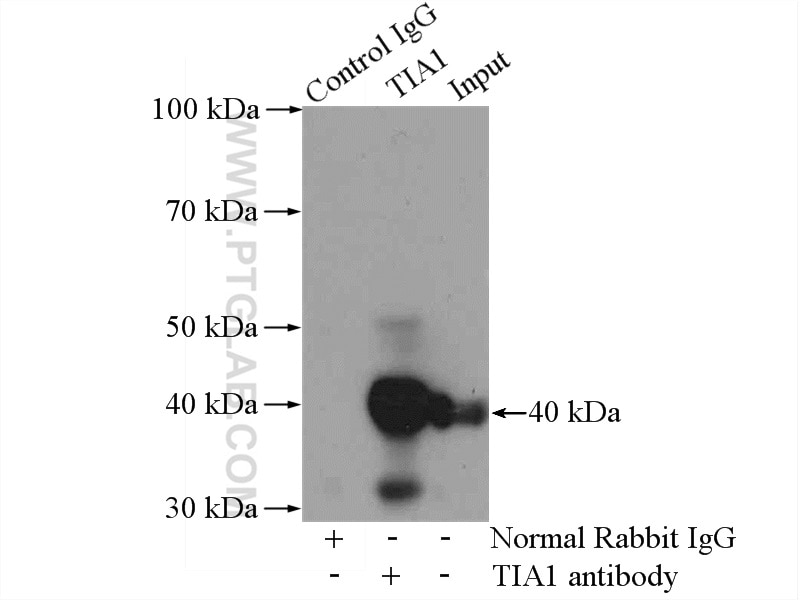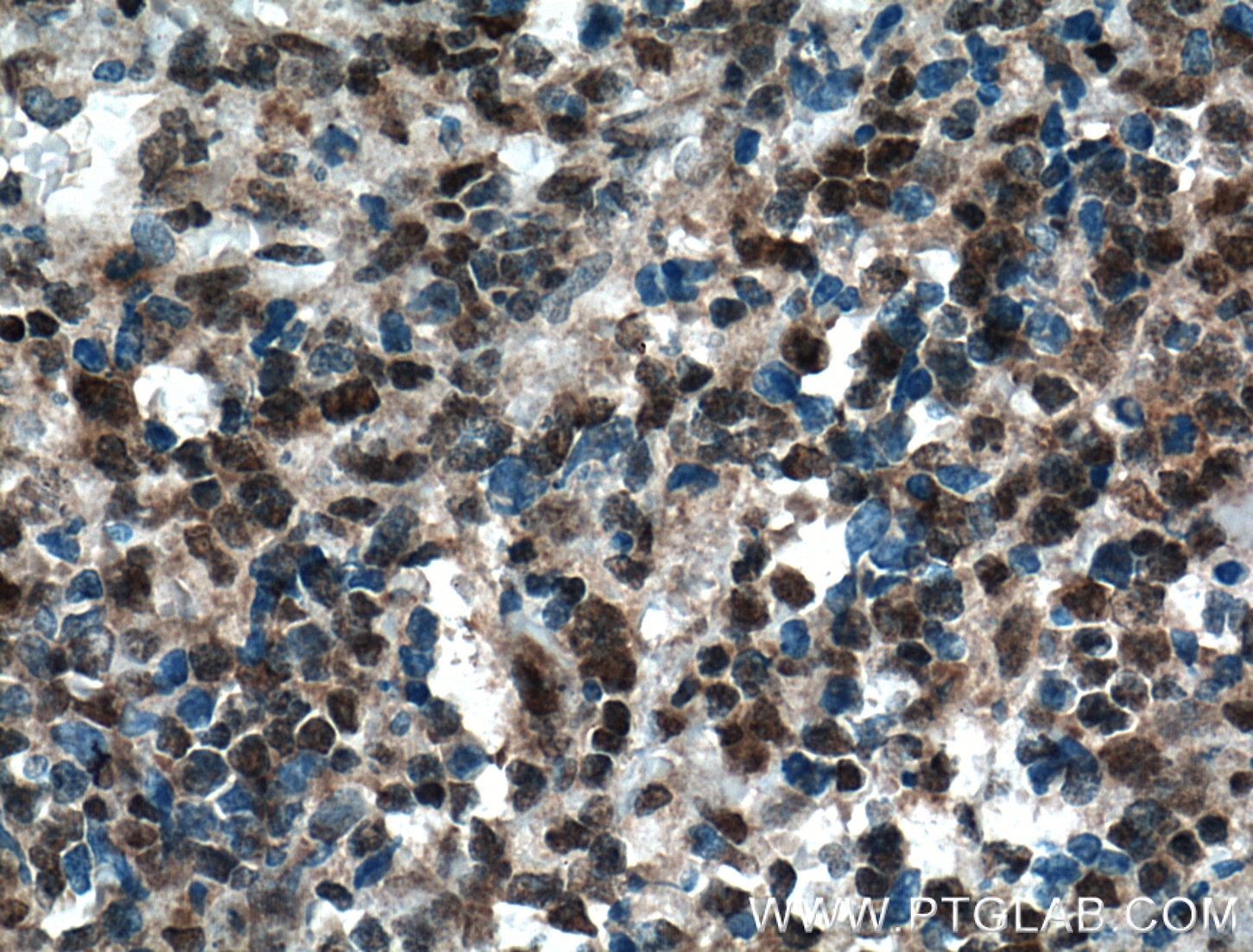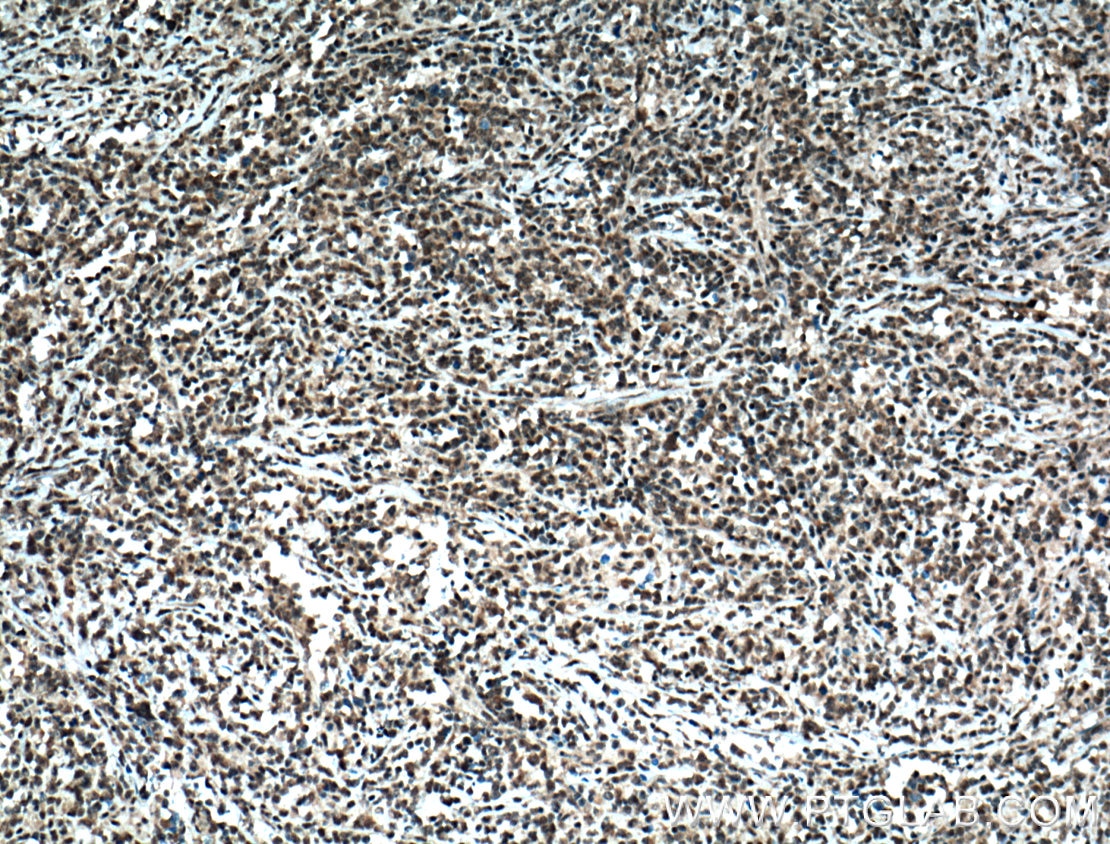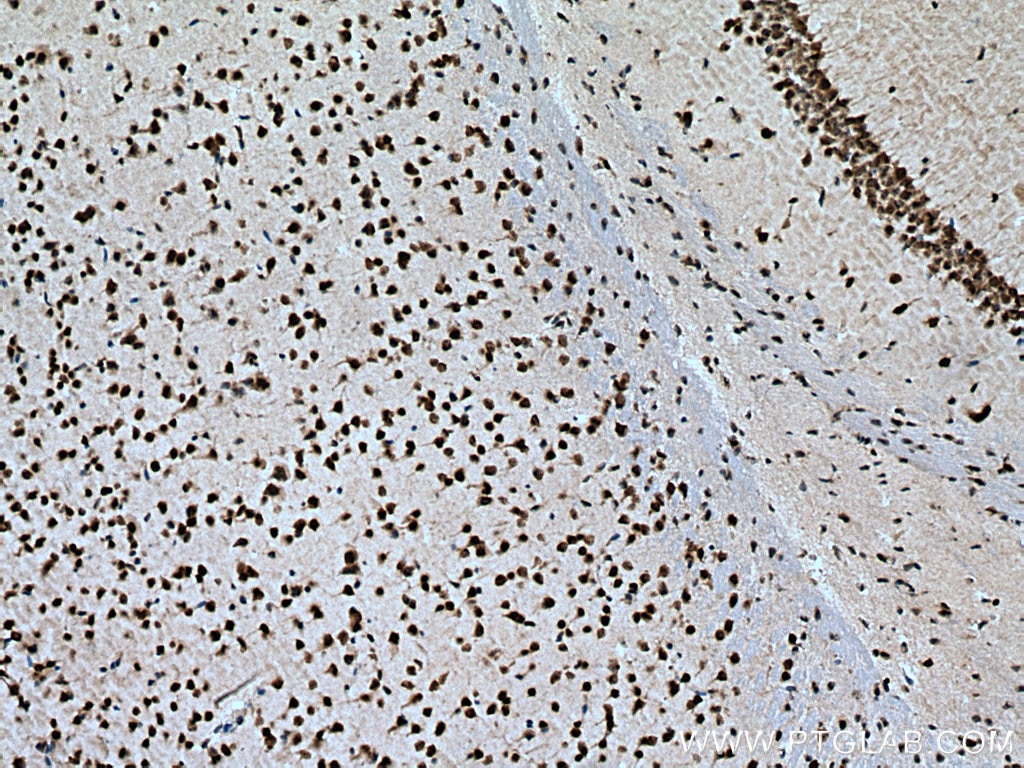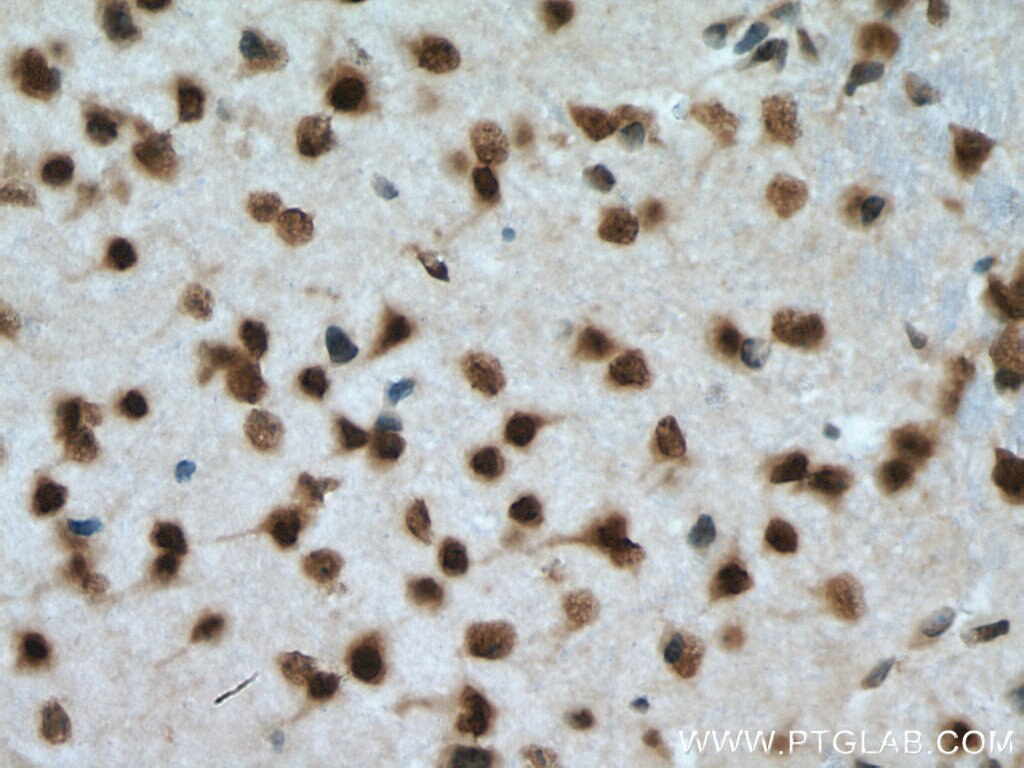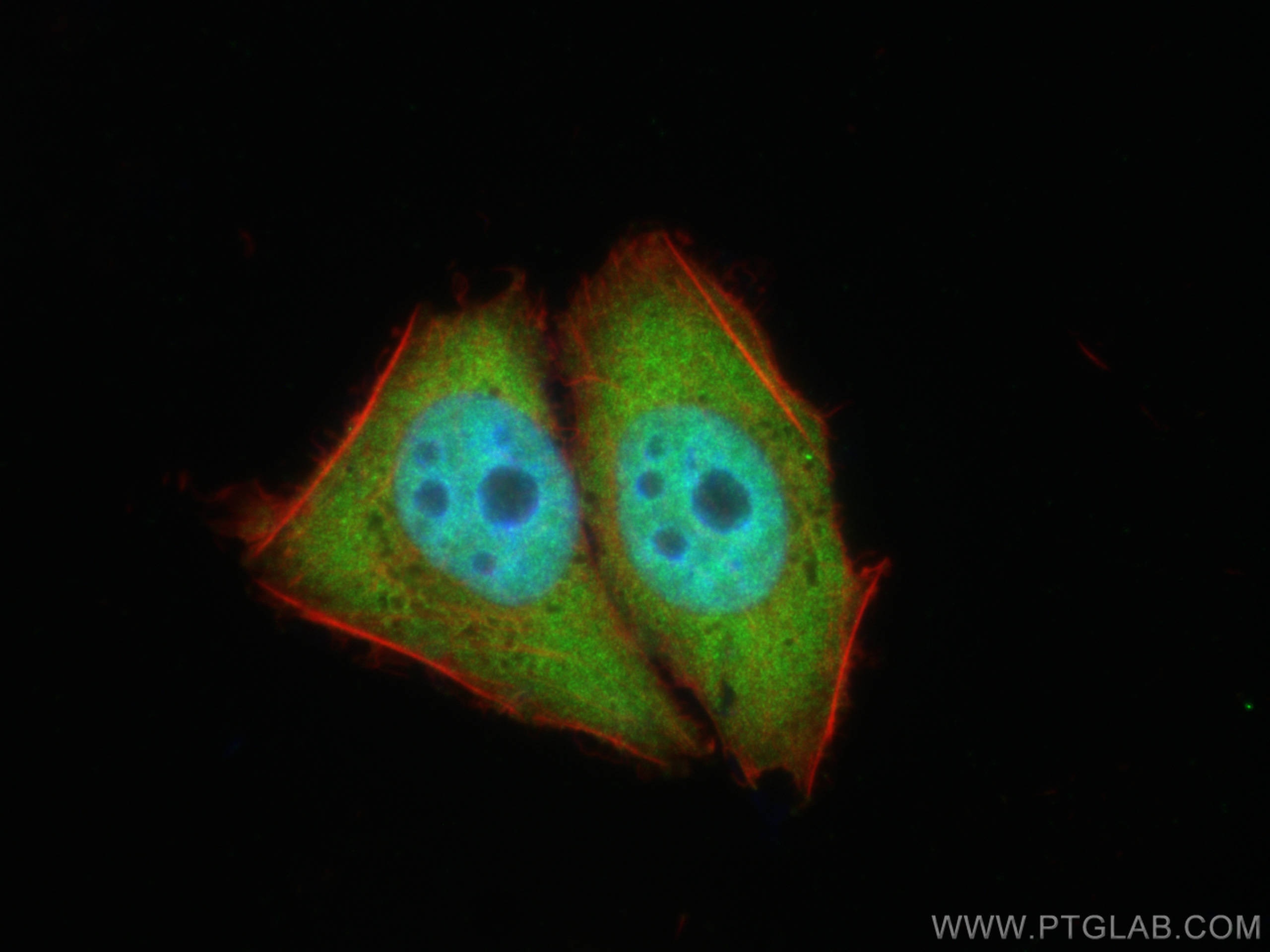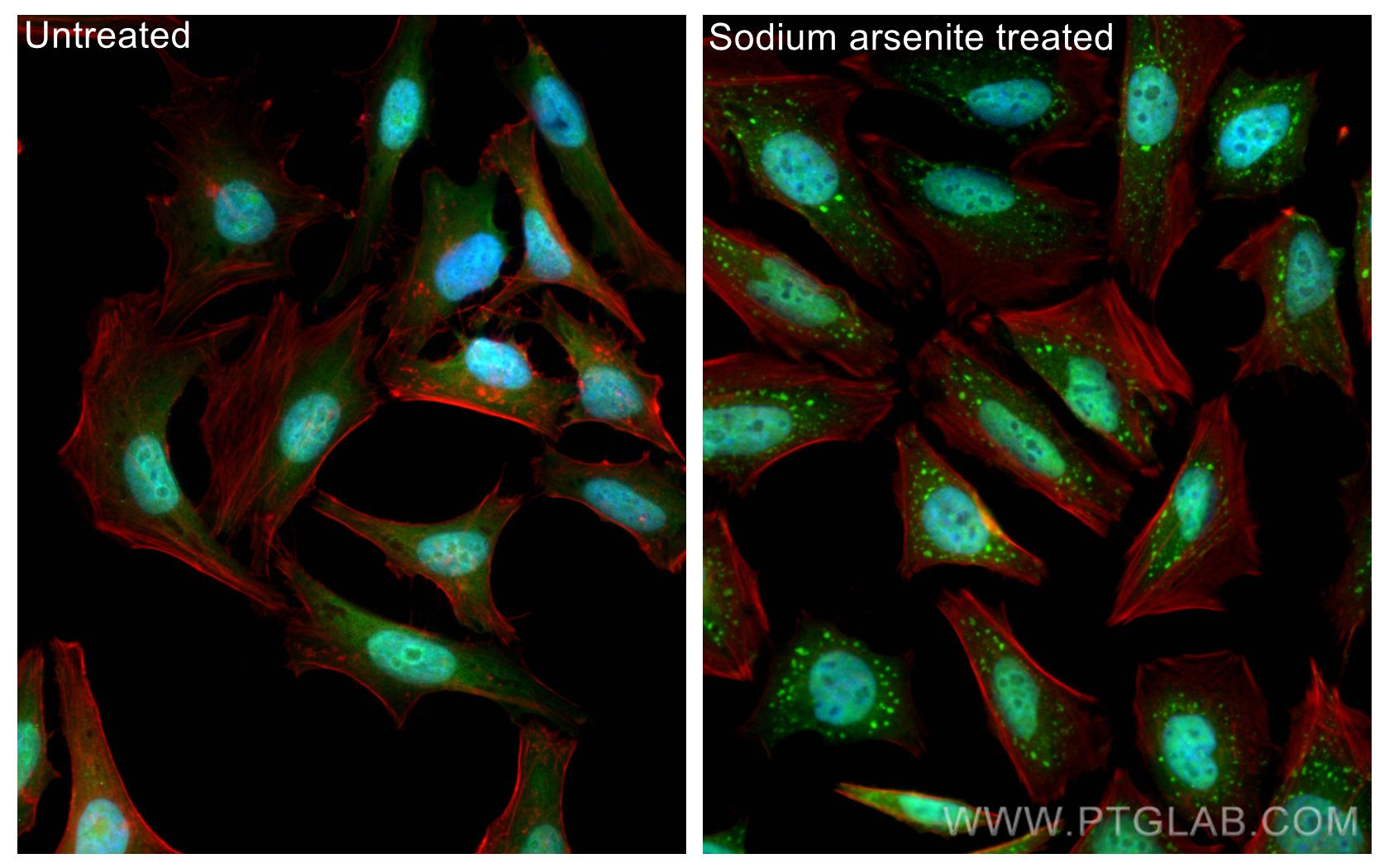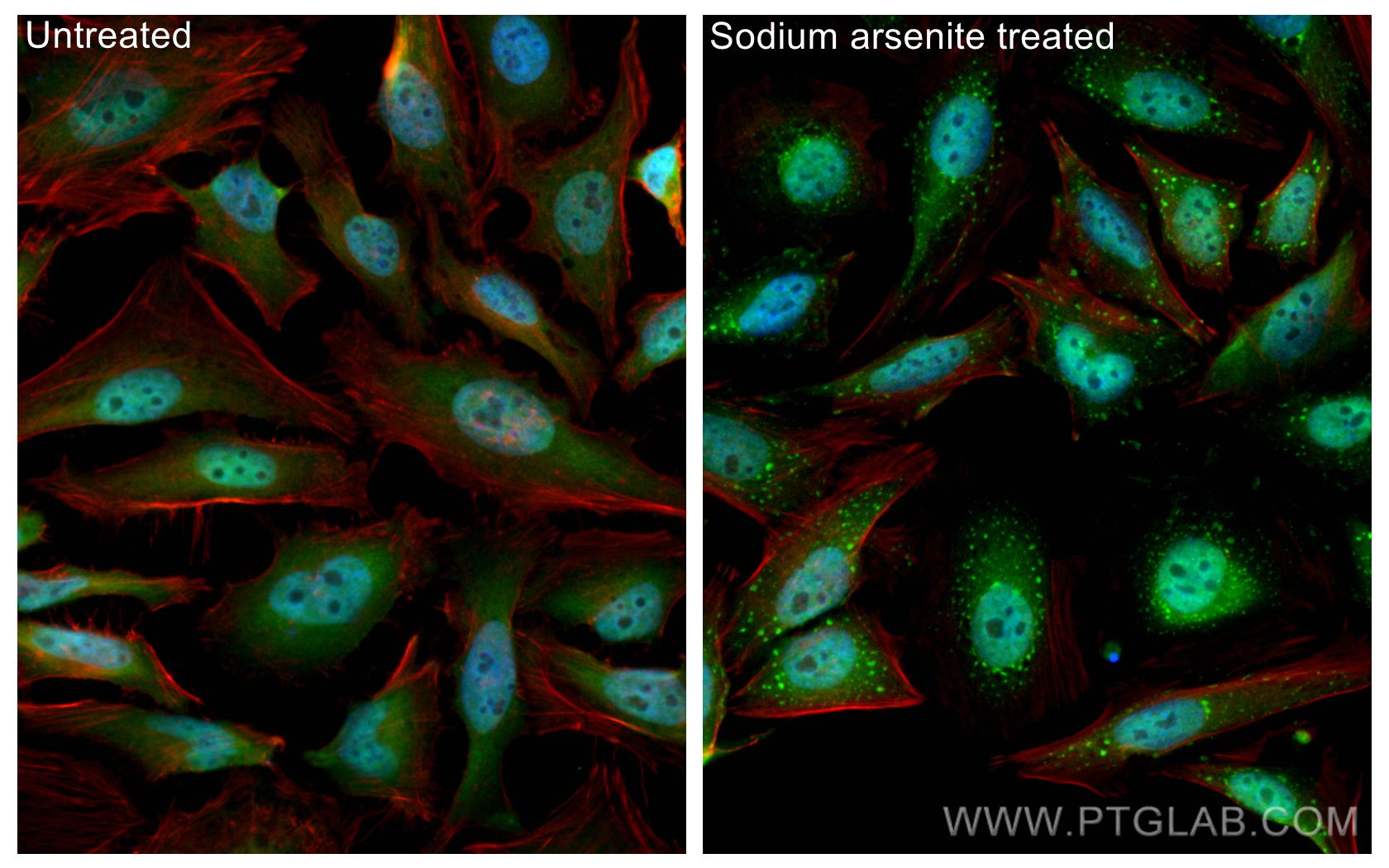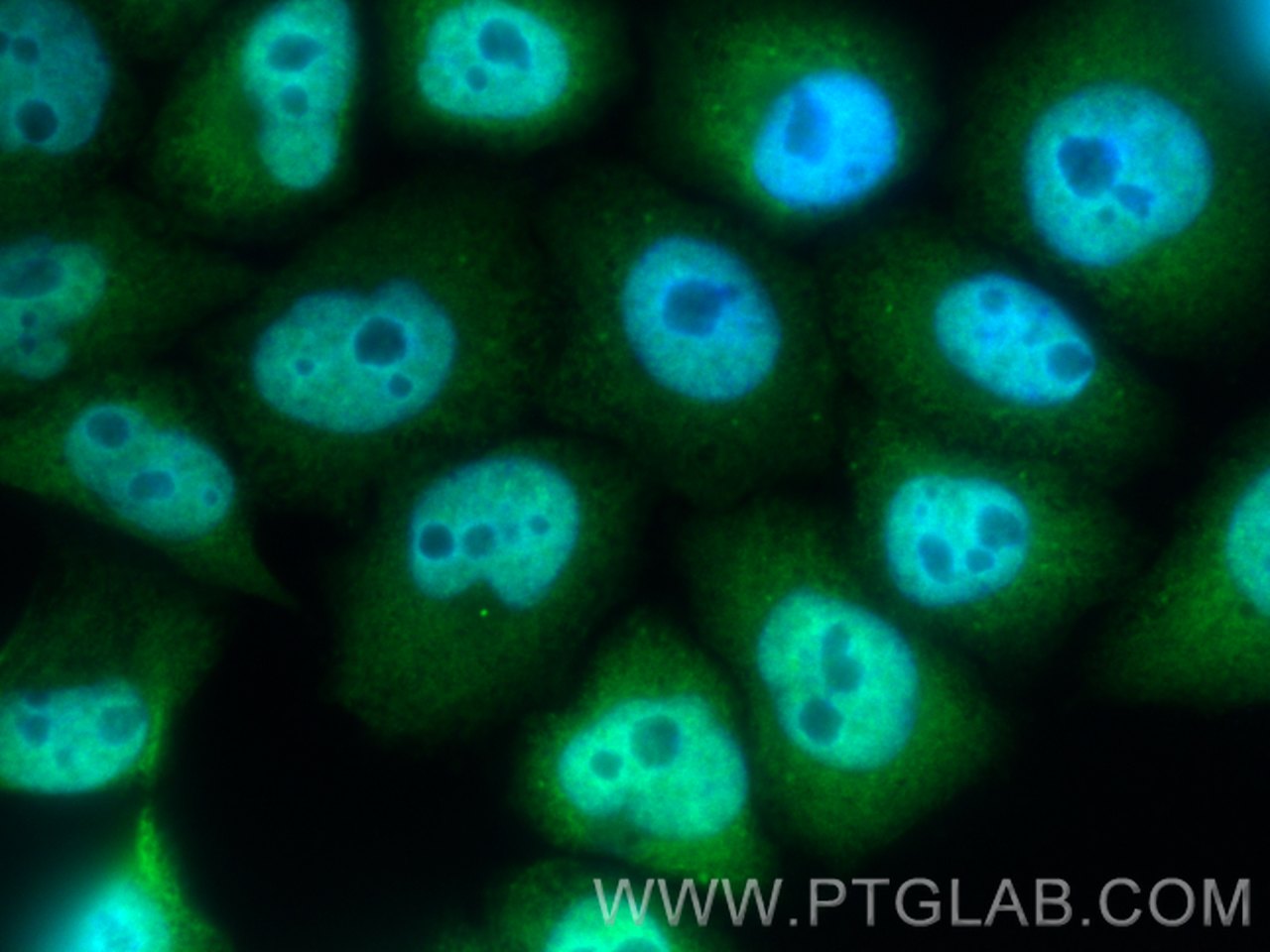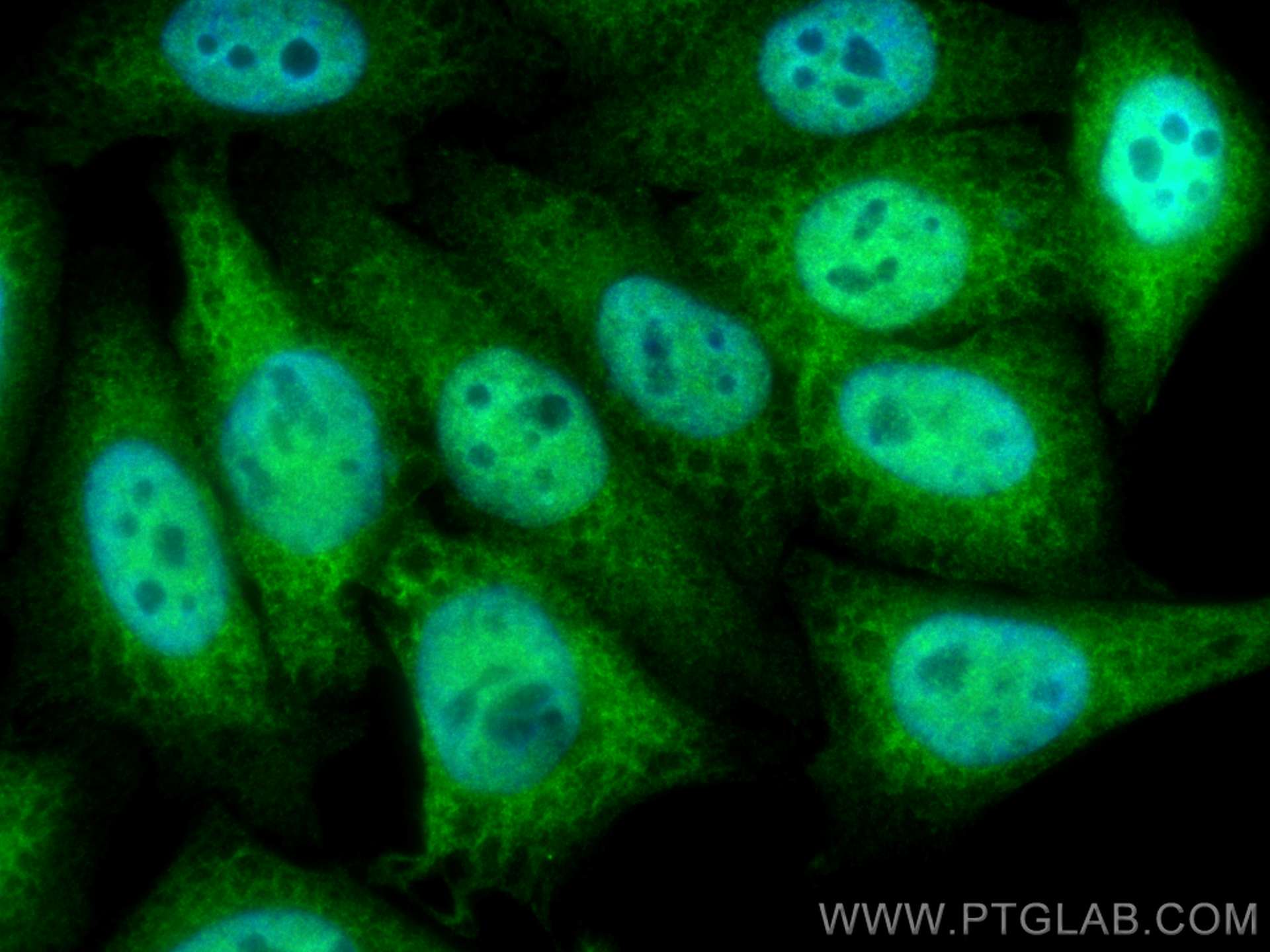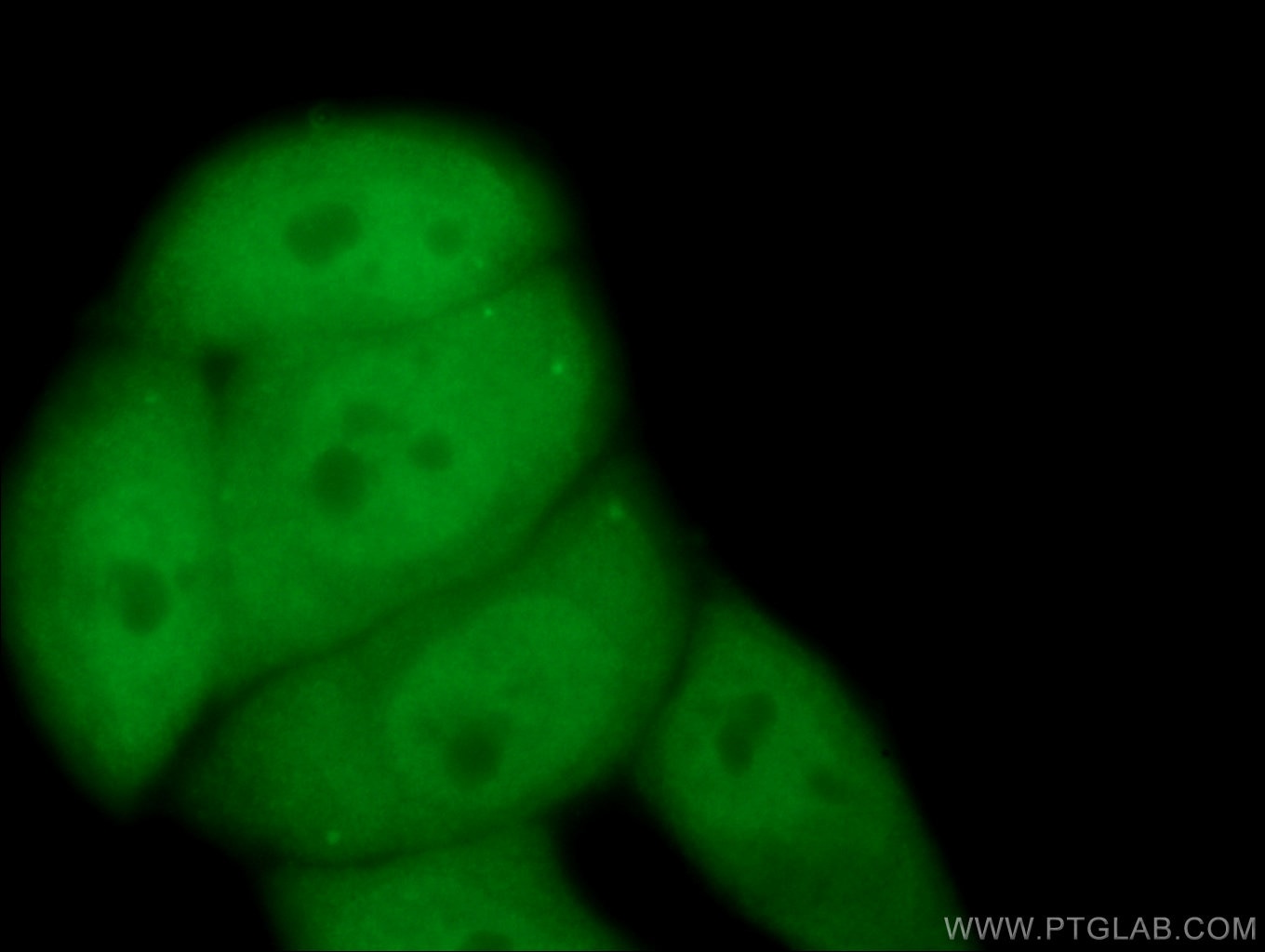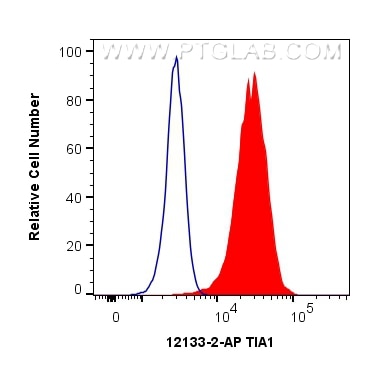Validation Data Gallery
Tested Applications
| Positive WB detected in | COLO 320 cells, Raji cells, mouse spleen tissue, mouse thymus tissue, Jurkat cells |
| Positive IP detected in | Jurkat cells |
| Positive IHC detected in | human lymphoma tissue, mouse brain tissue Note: suggested antigen retrieval with TE buffer pH 9.0; (*) Alternatively, antigen retrieval may be performed with citrate buffer pH 6.0 |
| Positive IF/ICC detected in | L02 cells, HepG2 cells, HeLa cells, sodium arsenite treated HeLa cells |
| Positive FC (Intra) detected in | HeLa cells |
Recommended dilution
| Application | Dilution |
|---|---|
| Western Blot (WB) | WB : 1:500-1:3000 |
| Immunoprecipitation (IP) | IP : 0.5-4.0 ug for 1.0-3.0 mg of total protein lysate |
| Immunohistochemistry (IHC) | IHC : 1:50-1:500 |
| Immunofluorescence (IF)/ICC | IF/ICC : 1:50-1:500 |
| Flow Cytometry (FC) (INTRA) | FC (INTRA) : 0.40 ug per 10^6 cells in a 100 µl suspension |
| It is recommended that this reagent should be titrated in each testing system to obtain optimal results. | |
| Sample-dependent, Check data in validation data gallery. | |
Published Applications
| KD/KO | See 6 publications below |
| WB | See 40 publications below |
| IHC | See 4 publications below |
| IF | See 35 publications below |
| CoIP | See 1 publications below |
| ChIP | See 1 publications below |
| RIP | See 1 publications below |
Product Information
12133-2-AP targets TIA1 in WB, IHC, IF/ICC, FC (Intra), IP, CoIP, ChIP, RIP, ELISA applications and shows reactivity with human, mouse, rat samples.
| Tested Reactivity | human, mouse, rat |
| Cited Reactivity | human, mouse, rat, pig, chicken |
| Host / Isotype | Rabbit / IgG |
| Class | Polyclonal |
| Type | Antibody |
| Immunogen | TIA1 fusion protein Ag2778 相同性解析による交差性が予測される生物種 |
| Full Name | TIA1 cytotoxic granule-associated RNA binding protein |
| Calculated molecular weight | 214 aa, 24 kDa, 43 kDa |
| Observed molecular weight | ~40 kDa |
| GenBank accession number | BC015944 |
| Gene Symbol | TIA1 |
| Gene ID (NCBI) | 7072 |
| RRID | AB_2201427 |
| Conjugate | Unconjugated |
| Form | Liquid |
| Purification Method | Antigen affinity purification |
| UNIPROT ID | P31483 |
| Storage Buffer | PBS with 0.02% sodium azide and 50% glycerol , pH 7.3 |
| Storage Conditions | Store at -20°C. Stable for one year after shipment. Aliquoting is unnecessary for -20oC storage. |
Background Information
TIA1, also named as p40-TIA-1, is involved in alternative pre-RNA splicing and regulation of mRNA translation by binding to AU-rich elements (AREs) located in mRNA 3' untranslated regions (3' UTRs). It possesses nucleolytic activity against cytotoxic lymphocyte target cells. TIA1 may be involved in apoptosis. Two isoforms of this protein exist - 41kDa and 42kDa. one of these was a missense variant (P362L) in TIA1. Similar to the ALS-related disease proteins TDP-43, hnRNPA1, and FUS, TIA1 is an RNA-binding protein containing a prionlike LCD and assembles into membrane-less organelles, including SGs. Postmortem neuropathology of five TIA1mutations carriers showed a consistent pathological signature with numerous round, hyaline, TAR DNA-binding protein 43 (TDP-43)-positive inclusions.TIA1mutations significantly increased the propensity of TIA1 protein to undergo phase transition. In live cells,TIA1mutations delayed stress granule (SG) disassembly and promoted the accumulation of non-dynamic SGs that harbored TDP-43. Moreover, TDP-43 in SGs became less mobile and insoluble.
Protocols
| Product Specific Protocols | |
|---|---|
| WB protocol for TIA1 antibody 12133-2-AP | Download protocol |
| IHC protocol for TIA1 antibody 12133-2-AP | Download protocol |
| IF protocol for TIA1 antibody 12133-2-AP | Download protocol |
| IP protocol for TIA1 antibody 12133-2-AP | Download protocol |
| Standard Protocols | |
|---|---|
| Click here to view our Standard Protocols |
Publications
| Species | Application | Title |
|---|---|---|
Cell In vivo structural characterization of the SARS-CoV-2 RNA genome identifies host proteins vulnerable to repurposed drugs.
| ||
Cell Res Predicting dynamic cellular protein-RNA interactions by deep learning using in vivo RNA structures. | ||
Nat Struct Mol Biol TDP-43 aggregation induced by oxidative stress causes global mitochondrial imbalance in ALS. | ||
Neuron TIA1 Mutations in Amyotrophic Lateral Sclerosis and Frontotemporal Dementia Promote Phase Separation and Alter Stress Granule Dynamics. | ||
Nat Commun Cellular stress alters 3'UTR landscape through alternative polyadenylation and isoform-specific degradation. | ||
Brain Defective cyclophilin A induces TDP-43 proteinopathy: implications for amyotrophic lateral sclerosis and frontotemporal dementia |
